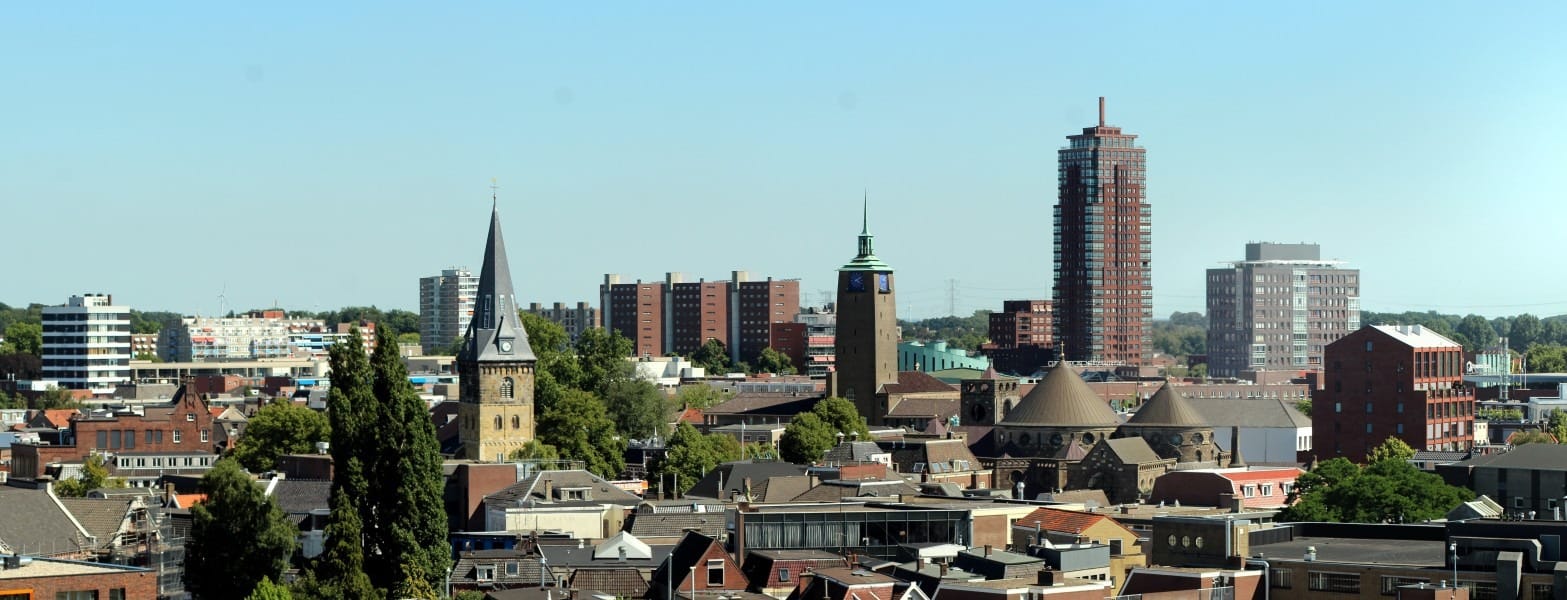It started with the challenge of finding new roles for 52 redundant colleagues. Three years later, Rudy de Ceuninck van Capelle from Capelle is the go-to person within the Municipality of Enschede for anyone looking to make a move. The new mobility strategy not only leads to significant cost savings but also results in happier employees.
He is the epitome of mobility, he says. He started as a payroll administrator and further worked as a Chinese interpreter/translator, head of operations at the library, and head of ICT at the municipality. Rudy de Ceuninck van Capelle (60) enjoyed all his roles immensely. Now, he finds himself in his element once again as Team Leader of HR Mobility at the Municipality of Enschede.
Automation of Processes
Thanks to his own career path, De Ceuninck van Capelle is the ideal person to get redundant colleagues moving. When he was asked to take on this task in 2019, there were 52 people affected by a reorganization. Or actually, 53, because he himself was - voluntarily - redundant. However, he was able to transition immediately into this role.
"Many processes have been automated in recent years, leading to changes or elimination of roles. There were also people who no longer fit in their positions. In such cases, you need to help people transition to other roles, either within or outside the organization. Out of the 44 people we ultimately reassigned - two retired, and we are still in discussions with six - 70 percent remained within the municipality, and 30 percent found opportunities elsewhere."
Expanded Beyond Expectations
To find the best positions for these individuals, the TMA Method was utilized. "By having everyone complete a TMA Talent Analysis, we could engage in discussions about their talents. The competency match in the TMA Portal was crucial for us; it allowed us to match people to positions." De Ceuninck van Capelle worked on this with Rick Bles, who was then a trainee and is now a talent coach. It turned out to be an ideal partnership. "Rick is trained in HR and specializes in talent, while I have the leadership experience."
And it didn't stop at those initial 52 individuals, as more people became interested in gaining insight into their talents. It "snowballed," as De Ceuninck van Capelle puts it with a smile. "People said, 'I'm not redundant, but I've been in the same role here for eight years and I'm curious about my options.' So, we engaged in conversations with them too."
The TMA Method has now become a staple within the municipality; around 400/500 people have undergone an analysis. The talent analysis is used within the municipality for career development (analysis with optional guidance), to prevent absenteeism (coaching), and to assist people with reintegration (maybe a different role/position suits them better?).
Talent- and Competency-Based Coaching
"In the first year, we conducted all TMA conversations ourselves, but now we have eight TMA Professionals," says De Ceuninck van Capelle. "Currently, I am the only one specialized in teams, but we plan to expand this. We also want to incorporate TMA into the recruitment process; everyone who applies undergoes a talent analysis. We then consider more than just a resume."
There are also plans to train all managers in handling TMA. "The talent analysis will still go through us, but the manager will then engage in a conversation with the employee. Teams often consist of 25/30 people, which requires managers to adapt: focusing more on talent- and competency-based coaching."
He already sees changes. "For example, a manager looking for a new employee tells us what skills are needed and asks if we can find the right talents and competencies."
Even Greater Savings
In De Ceuninck van Capelle's view, the role of the mobility unit should be: "Ensuring that the right people are in the right positions and also facilitating managers to coach based on talent and competency. This allows them to progress, while we focus on other tasks, such as providing job interview training, helping people build their resumes, addressing obstacles they encounter, facilitating reflection, and preventing absenteeism."
He sees a continued role for himself in this. "I still have seven years to go and want to leave something to be proud of." What does it yield for the municipality itself? "In the first year and a half, it saved us 3.5 million euros. For example, in salaries that would have been paid to people who were at home. And actually, that figure is even higher because the municipality would have had to hire additional staff to cover the work that was left undone."
Voluntary Mobility
Apart from successful forced mobility and the cost savings from reallocating redundant personnel, voluntary mobility has emerged. "TMA provides us with the foundation for this. We can now much more easily place the right people in the right positions, and this is being recognized. It doesn't always have to be a 100 percent match; what matters most is seeing if someone has the potential to develop. Managers are becoming increasingly aware of their changing role towards employees. Their focus is shifting more towards identifying individuals' talents and areas for development rather than their weaknesses. The organization is open to this, and that's wonderful."
Beyond the municipality's borders, there is also increasing openness to the relationship between talent and mobility. "Everyone in the region wants qualified personnel, so it's good to seek connections in that area. We exchange resumes, and people can pitch themselves during the Twente Mobility Table, which includes municipalities, universities, courts, police, etc. It's how a legal expert from the court ends up working for us, and I engage in conversations with someone from the Tax Authority. Collaboration in the region - by focusing on retaining the talent
